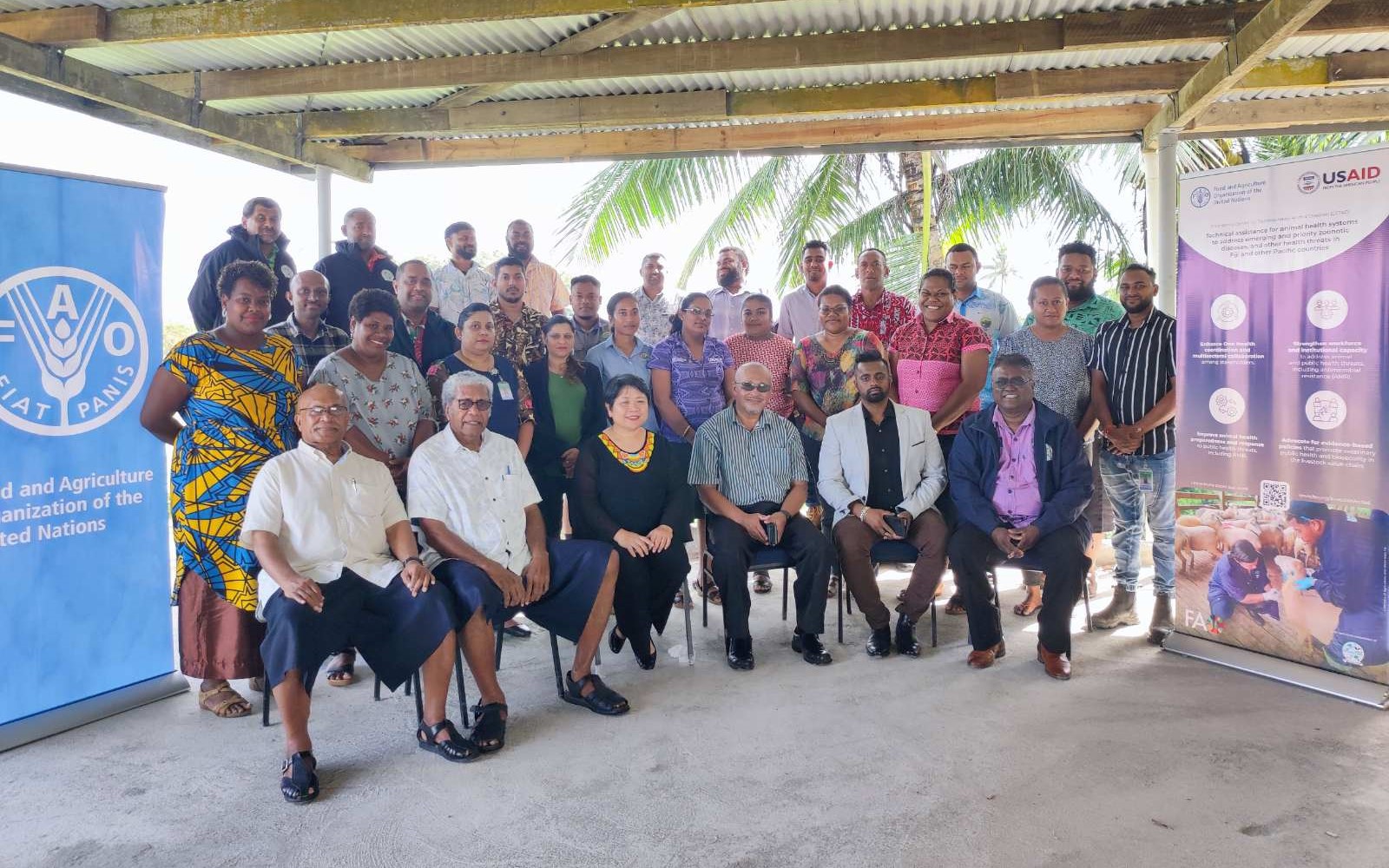ANTIMICROBIAL RESISTANCE WORKSHOP TECHNICAL STAFF
September 10, 2024

Around
twenty-five staff from the Animal Health and Production Division and the Fiji
Cooperative Dairy Company Limited (FCDCL) are attending a two days
Antimicrobial Resistance (AMR) workshop at the Koronivia Research Station.
In opening the
workshop yesterday, Permanent Secretary for Agriculture and Waterways, Dr.
Andrew Tukana said that Antimicrobial resistance is a global health threat that
transcends borders, affecting every nation and community.
“The World Health
Organization has declared AMR as one of the top ten global public health
threats facing humanity. The rise of resistant pathogens threatens to undo
decades of medical progress, making once-treatable infections potentially
deadly,” said Dr. Tukana.
AMR occurs when
bacteria, viruses, fungi, and parasites evolve to resist the effects of
medications, rendering standard treatments ineffective and infections
persistent.
This resistance
leads to longer hospital stays, higher medical costs, and increased mortality.
According to recent estimates, AMR is responsible for approximately 700,000
deaths annually, a number projected to rise to 10 million by 2050 if no action
is taken.
Dr. Tukana
reminded participants that the workshop aims to provide a comprehensive
introduction to AMR, covering its causes, consequences, and the strategies that
can be employed to combat it.
“Addressing AMR
requires a one Health multi-faceted approach involving healthcare
professionals, environmentalists, policymakers, researchers, and the public. It
is a shared responsibility that demands collaboration across sectors and
disciplines. By working together, we can develop and implement effective
strategies to mitigate the impact of AMR and safeguard the efficacy of
antimicrobial agents for future generations,” added Dr. Tukana.
Sessions covered
during the two days includes:
![]() Principles and guidelines of antimicrobial
use.
Principles and guidelines of antimicrobial
use.
![]() Surveillance and Monitoring: The importance of
tracking resistance patterns and the role of data in informing policy and
practice.
Surveillance and Monitoring: The importance of
tracking resistance patterns and the role of data in informing policy and
practice.
![]() Antimicrobial Stewardship: Strategies to
optimize the use of antimicrobials in healthcare settings.
Antimicrobial Stewardship: Strategies to
optimize the use of antimicrobials in healthcare settings.
![]() Infection Prevention and Control: Best
practices to prevent the spread of resistant infections.
Infection Prevention and Control: Best
practices to prevent the spread of resistant infections.
![]() Promoting responsible antibiotic use
Promoting responsible antibiotic use
![]() Strategies
for Reducing Antimicrobial Use in Livestock
Strategies
for Reducing Antimicrobial Use in Livestock
“I urge each of
you to think critically about the role you can play in addressing AMR. Whether
you are a clinician, a Paravet, a researcher, a lab technician, policymaker or
advocate, your contributions are vital. Let us use this opportunity to learn
from each other, build partnerships, and commit to taking concrete actions to
combat AMR.”
Dr. Tukana also
thanked the Fiji Cooperative Dairy Company Ltd and its Veterinary Consultant Dr
Ken Cokanasiga, for initiating the programme, the Animal Health and Production
leadership for its support and helping with the logistical arrangements, and
USAID through FAO for sponsoring the workshop.
ENDS
